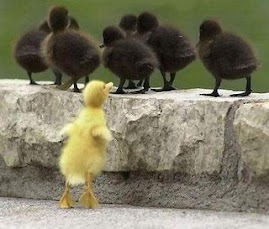I've been thinking about cities my entire life and as an adult, I've gotten paid to do it. Nice gig. But I feel guilty that I don't have the answer. I'm supposed to be about creating new knowledge and transmitting it to the next generation of scholars. I feel like if I were good at my job, cities like Camden would not be "cities like Camden." But then I realize that there are a zillion economists in the world and they get Nobel prizes and none of them foretold the current depression or can figure out how to fix it. I don't feel so bad.
Still, I have enduring faith that cities can work. People can live densely together and enjoy an uban environment. If we sold city living the way suburban marketers sold suburbs, we couldn't get into a city apartment - kind of the way Manhattan is - the most expensive real estate in the country. But Camden is not Manhattan and neither is Kansas City. Why are some cities working and some aren't? Maybe other cities need a song.
I've been thinking a lot about crowdsourcing lately. I think it originated as an IT term that has now made its way into trendy status as an approach to problem solving. Some people have appropriated it as a modern version of public participation, particularly in urban planning contexts. The idea is that a crowd of people can contribute to a solution better than a single expert. We used to call this consensus building through facilitation. Now it's crowdsourcing.
But I think for cities there is a real utility in this concept. If things are not working in a city as I outlined in my last post, then how can we go about fixing them? That's the traditional approach, right? If it doesn't work, then fix it! American ingenuity and all that. But what if more, better, different doesn't work? What if there is no fixing it? 20 or more years ago, Time magazine had a cover story that basically said, let's just let cities go and not fix them. Regionalism was just beginning to be faddish and people said let the central city die and we'll all move to the suburbs. It hasn't happened. Why? If cities are so bad, why don't people abandon them? Is that what is happening to Detroit? I don't think so. But the idea of "fixing" a city is a fallacy. It needs to be organized and operated as an environment that fits with the people. What we sometimes do is change out the people to fit the environment, aka gentrification. But what if we used a crowdsourcing technique to find an optimum way for a particular city to work?
Detroit is taking up urban farming. Why? Because land is cheap and plentiful (though polluted) and people need food they can afford. People who want to have local and green lifestyles also may like being in proximity to other people and things to do. This is why green living has become popular in places such as Chicago (though I don't think Grant Park is about to turn into a farm just yet). The naysayers say that Detroit is a manufacturing city (correction, "was"), or a tourist city (see baseball stadium and casino downtown), or a high tech city (maybe?). What if it is a green place that the people there are comfortable taking on and more people who want that come there? This is what the creative class is about. People such as Richard Florida dubbed it so, and turned it into a synonym for "hipster." But creative has many different contexts and outcomes. The crowd will determine what the creativity is and then enjoy it.
Today the NJ legislature announced that it was returning power to Camden and ending state management of the city. In addition, the state would provide a guarentee of funding and impose a new occupational fee in lieu of property tax on non-property tax paying buildings where people are employed (schools, hospitals, nonprofits, churches, government buildings). Ratables and generating income is what the city must be about. What if the crowd decided differently? What if, through crowdsourcing, people came up with inovative ideas that made sense to them? What if this became the centerpiece of transformation? Let's face it, urban renewal is designed to produce benefits for investors, not citizens. So what if we tried urban transformation built by citizens? Would that generate the foundation for a working city?
Here is an example from Cleveland!
Subscribe to:
Post Comments (Atom)









No comments:
Post a Comment